Why do some women demand dowry from their parents?
The answer lies in patriarchy.
Nitin Gadkari, the minister for Road Transport & Highways, tweeted a video on September 9th. The video shows a bride's father weeping as the daughter gets into the new car with her newlywed husband. A policeman (Akshay Kumar) walks up to the father and states that the vehicle isn't safe enough if it does not have airbags for the back seats. The video ends with Akshay recommending everyone purchase cars with six airbags. But the video's comments section is filled with angry comments on 'dowry promotion'.
This was a public safety announcement ad released by the government of India. The ad has faced much backlash on Twitter and Youtube as it is perceived as a promotion of dowry. A few argued that a dad gifting a car need not be considered dowry but could be just a gift. Now at some level, this seems like a logical argument. But there are nuances to it.
I am deconstructing the nuance of dowry and patriarchy from my limited observation.
Part 1: Boys are assets, girls are liability
India is primarily a patriarchal society where men are considered assets and blessings to the family. This patriarchal mindset leads to differential treatment from a young age, where boys are given preferential treatment over girls. It could be as small as boys being served food at the table, whereas girls are expected to serve it for themselves and others. Indian parents do not fail to remember that she should groom herself to fit into her in-law's family to uphold the values of her current family. There is a constant reminder of her current place being a temporary one.
Only around 13% of the households actively save for their retirement. Indian families depend on their children to care for them when they are old. Especially the boys of the family. The RBI household finance survey illustrates the source of retirement funds for Indian households.
Most married women are not encouraged in the workforce or confined to caring for their households. The women's labour participation rate in India is just 21%, which is lower than our neighbouring country Bangladesh (38%). It's not an uncommon question for the boy's family to ask if the potential bride would work post-marriage.
The female labour participation rate has declined over time. The onset of the pandemic has pushed the pace even further.
Part 2: Dowry and inheritance
The arranged marriage market is ruthless regarding caste and dowry discrimination. When my profile was circulated in the marriage market to potential families, I was warned about explicitly stating 'no dowry'. I was told that the groom can choose not to ask for a dowry but should not stop the girl's parents from gifting it to their daughter. They also added that when a boy explicitly says he doesn't want a dowry, it raises suspicion that there could be something wrong with the groom, and there would be further investigation.
Cut to another instance where a friend's maternal uncle had two daughters. The second daughter demanded that the wedding be conducted with a higher budget and that she get the gold jewellery equivalent to what her elder sister had for her wedding.
When I heard this for the first time, I was taken aback a little, but when I dug deeper, I uncovered a motivation behind it.
When the younger sister gets lesser jewellery and money from her family, there is a constant comparison from the in-law's side or a sense of partiality that would arise within the sisters.
For most Indian families, the parents spending money on their daughter's wedding is considered the last most considerable expense. Hence the woman sees the dowry as her chance to get a share of her inheritance from the family.
If you think this is an extrapolation from a single instance, the Tamil channel Star Vijay hosted a debate show episode around brides demanding dowry from the bride their parents. This show was an eye opener on many fronts as these young women demanded everything from lavish weddings to jewellery to homes for them during the wedding. The show reiterated that the girl's marriage is considered her chance to get her share of the inheritance from her parents.
Here is the link to the show for everyone who understands Tamil.
Neeya Naana: Mother, Where's My Dowry?| S23 E6
Part 3: Demanding equal rights over the family property
The demand for dowry for marriage is illegal (Dowry prohibition act, 1961) in India, and the women have the right to inherit an equal share of the parent's assets among the siblings (Hindu succession amendment act, 2015). Though the law allows it, the likeness of a woman filing a case against a sibling or her parents would be significantly less. She would win the case, but that would also mean that the act would be looked down upon among the people she depends on. This could be her extended family or her in-laws.
Also, relationships are much more than money. She could win the case, but she would potentially cut her children off from her relationship with her parent's side. The downsides are usually considered and would be settled out of the court through conversations among the family members. She would most likely try to strike a balance between the relationships she would want in her life and her right to inheritance.
I don't intend to justify the act of demanding dowry. Indian families, on average, spend around 10 Lakhs on a wedding in a country where the per capita income is approximately 1.75 Lakhs. Lavish weddings act as social signals in the community. Many parents are forced to borrow money at a high-interest rate to fulfil the marriage expenses and dowry demands, thus making the households debt-ridden.
But the act of dowry is also intertwined with the nuances of patriarchy in Indian families. They need systematic change at all levels for a progressive society. Until society changes its view around the role for women, treats them equal to a man and empowers her to have her own identity outside the family, dowry would find its way into this ecosystem.
This is an opinion piece from my limited observation. I'm open to alternative viewpoints and conversations around this topic :)
Subscribe to 'The India Note' for weekly discussions on consumer behaviour in India.




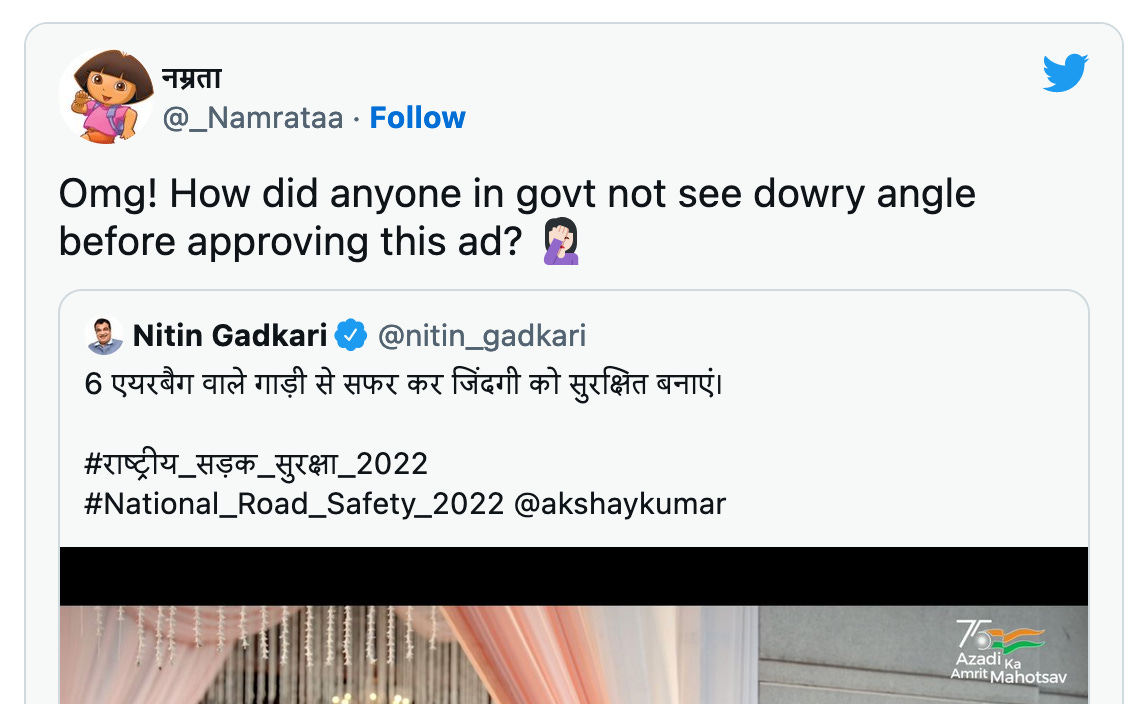

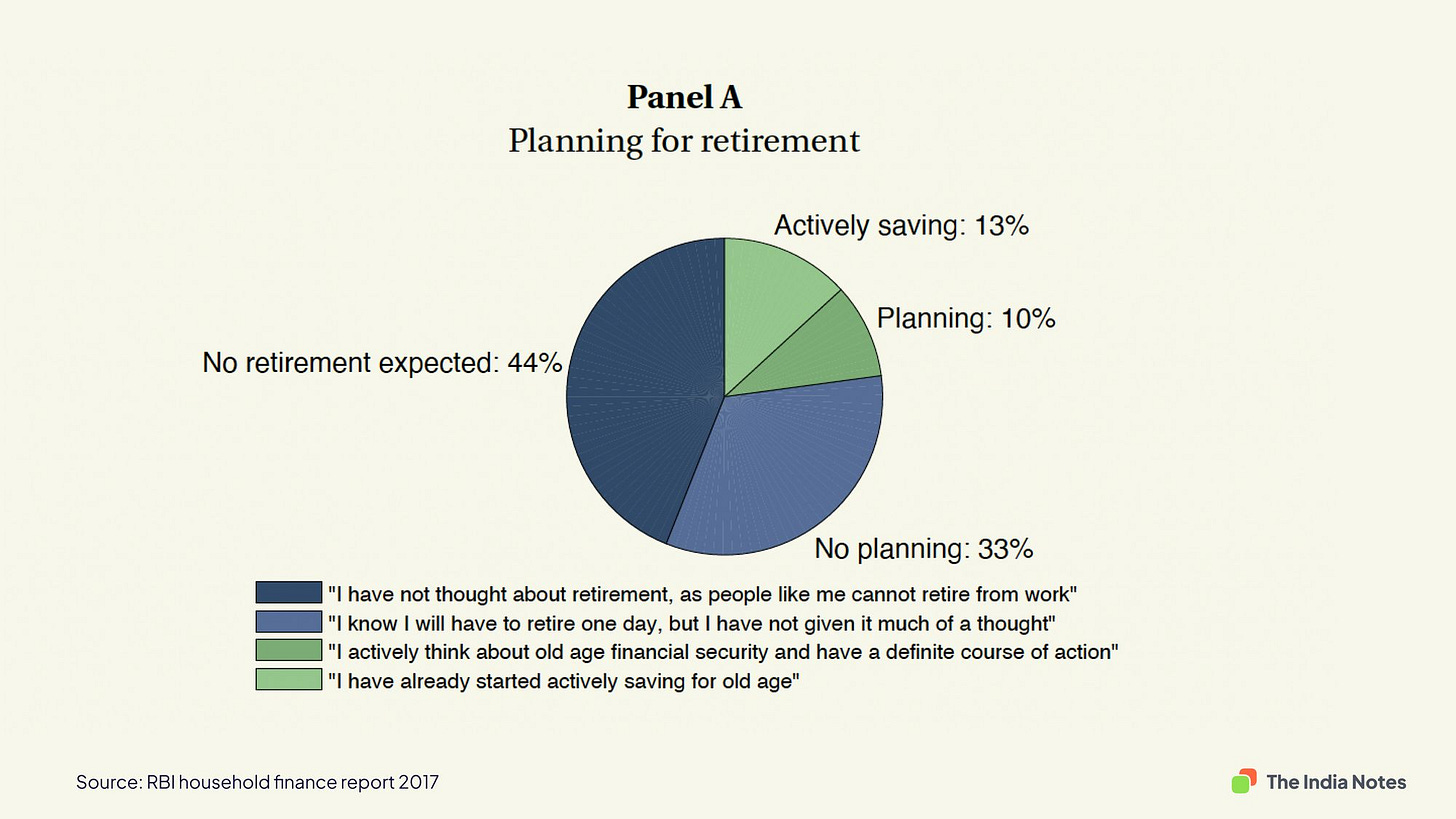
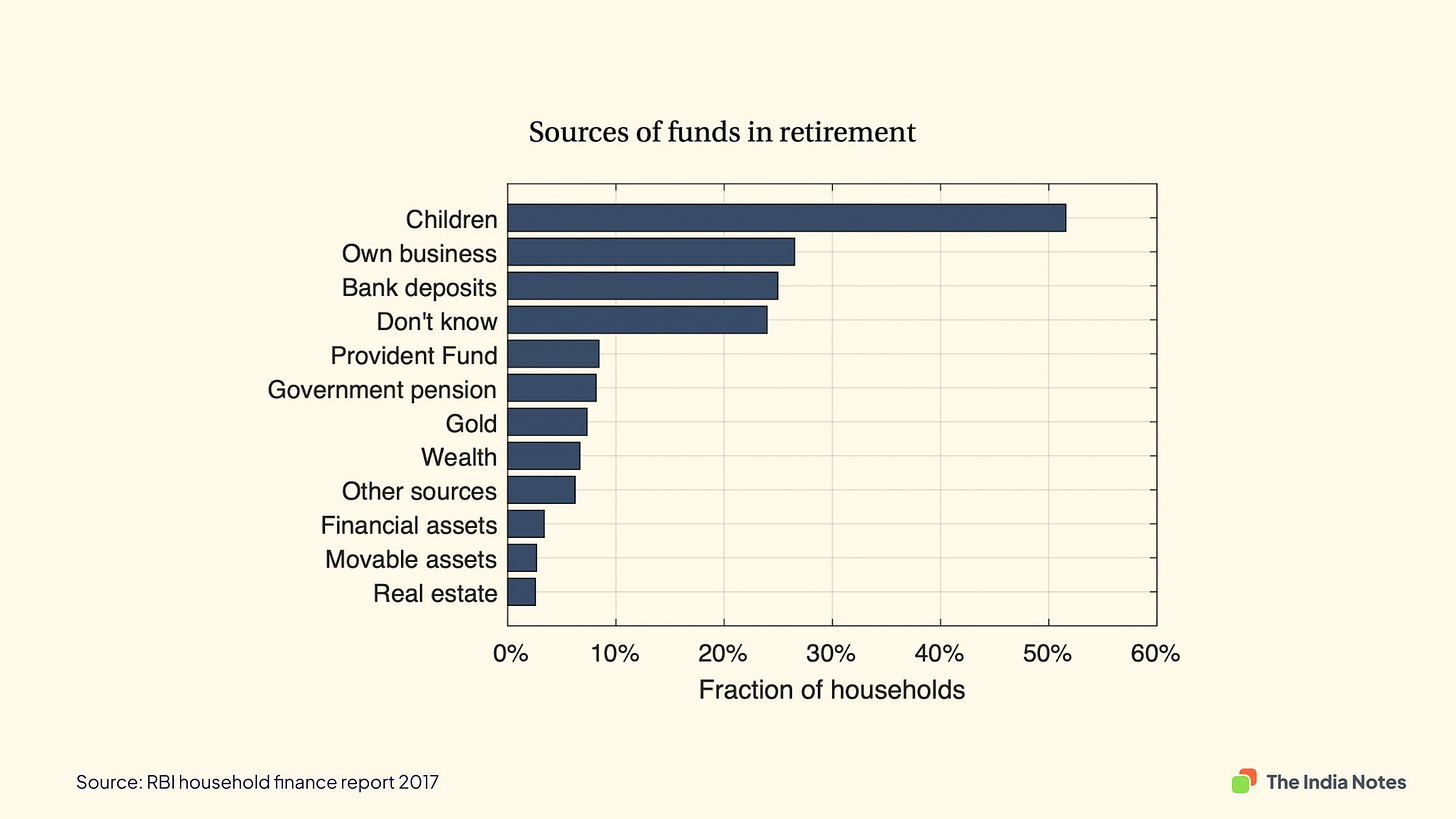
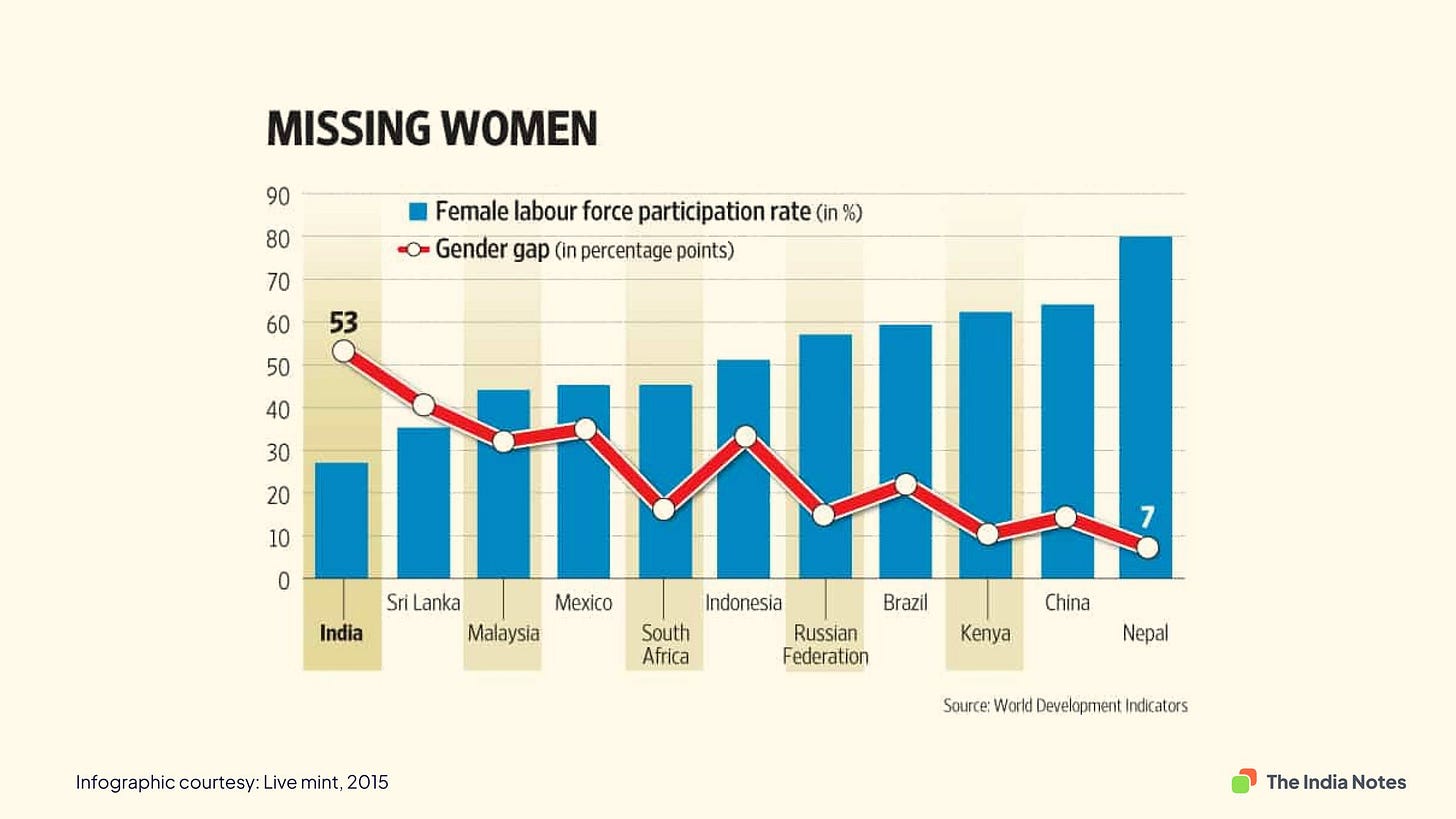
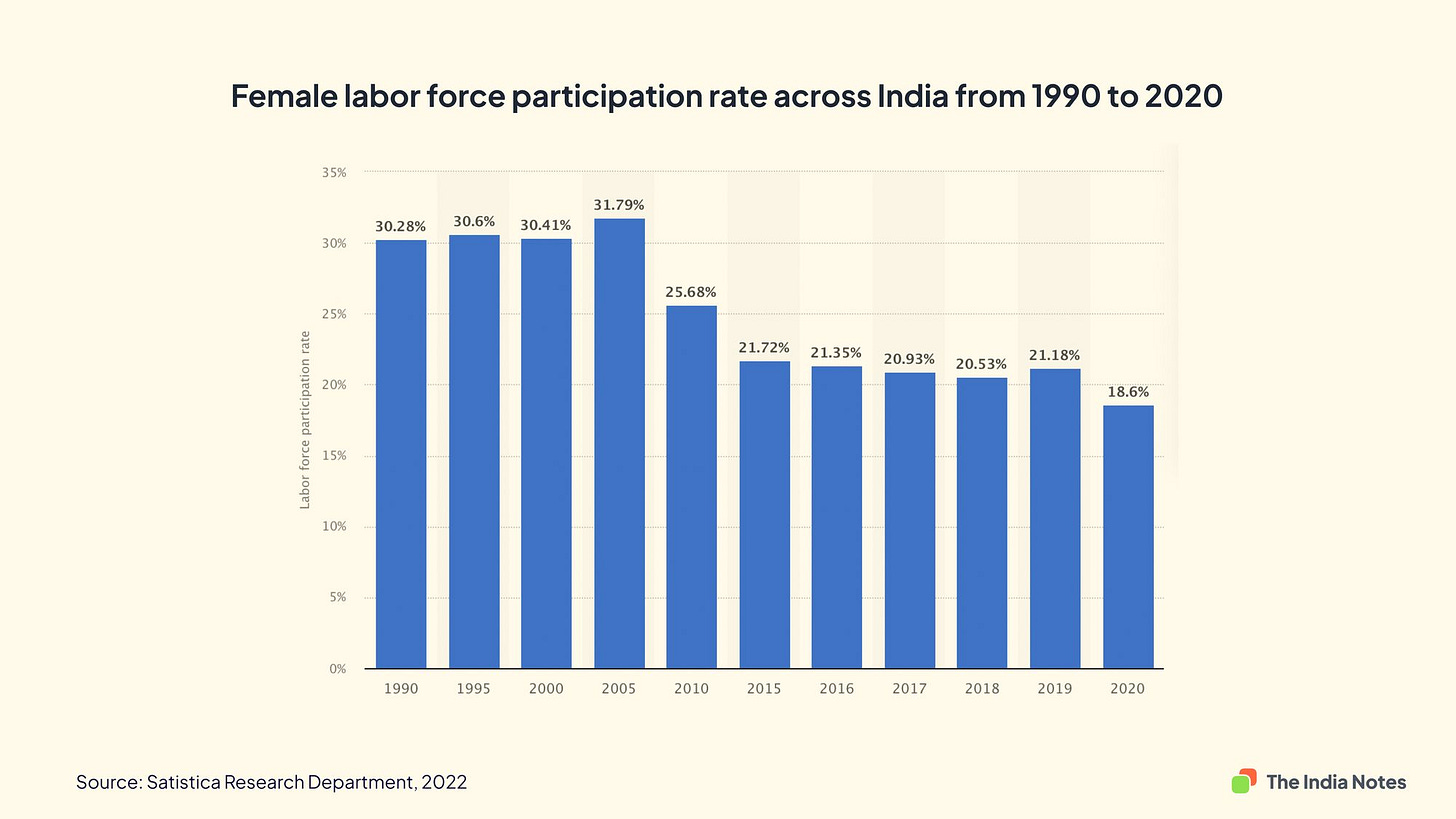

Another nuance that I've observed is this mindset of parents - now that I've provided X as dowry in my daughter's wedding (generally married earlier than male siblings), it's my right to receive >=X for my son's wedding. Never stops the vicious cycle.
If I am not wrong, it all started during the British raj with a law that prohibited women to own land and property. Thats what made dowry a problem. Otherwise dowry for all the reasons you mentioned and more, has been a part of Indian society from ages. Now that that particular law doesn’t exist anymore, the damage caused by it does. In my limited understanding, the problem is when the bridegroom or the in-laws demand the dowry.